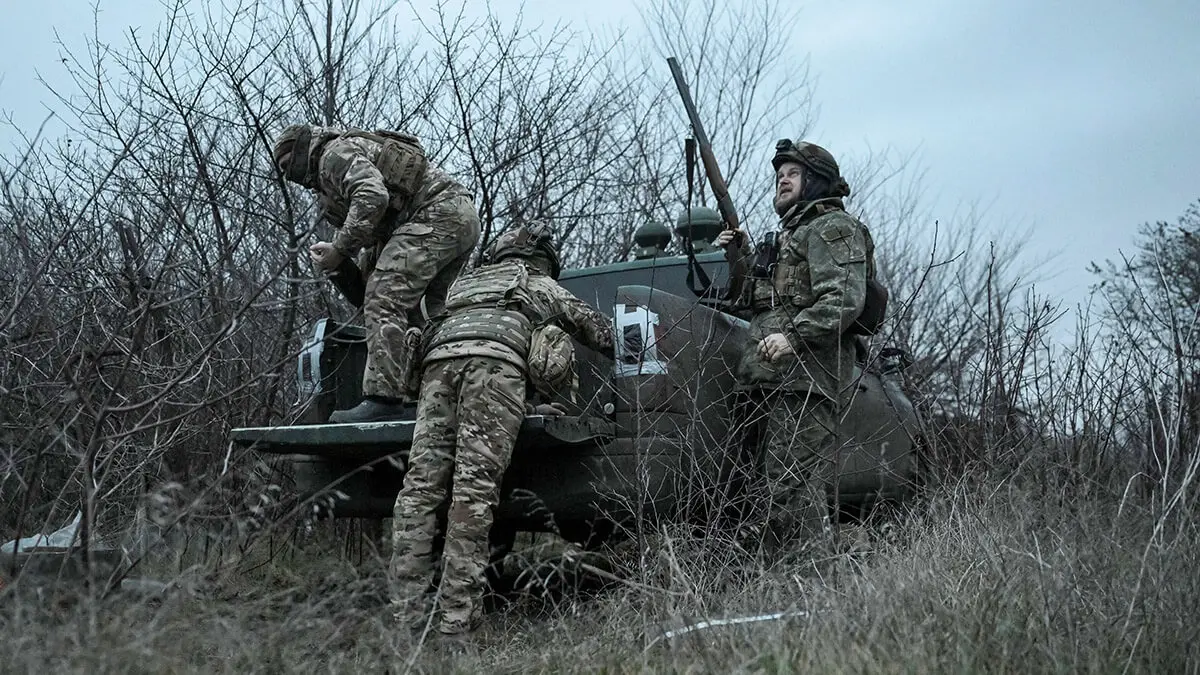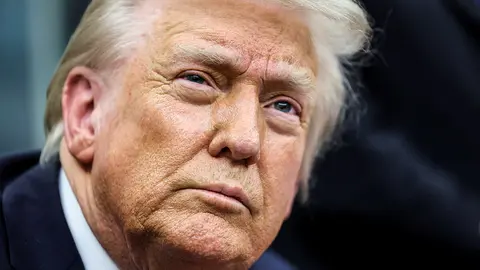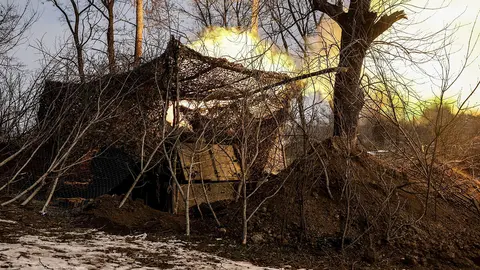War drums are beating in Europe

According to the ‘Encyclopedia of the Holocaust’, the cause that triggered the start of the First World War (1914-1918) was the assassination of Archduke Franz Ferdinand, heir to the Austro-Hungarian crown, and his wife, Archduchess Sophie, in Sarajevo on 28 June 1914. An excellent excuse to bring to the table the interests and ambitions of each of the contenders.
The Second World War (1939-1945), with Europe as the main stage, was a consequence of Germany's annexation of Austria in 1938 and the invasion of Poland a year later.
At this point it would also be interesting to analyse the frustrations, the betrayed agreements and the gigantic interests at stake.
Suffice it to say that, in the offensive and annexationist actions of Germany, to whom official historiography attributes all the sins exclusively, it always had a partner within the engulfed country or the passivity of its enemies.
The annexation of Austria, the ‘Anschluss’, was possible because the Austrian chancellor Kurt Schusnigg bowed to Hitler, allowing Austria to become the German province of Ostmark in March 1938.
France and Great Britain, declared enemies of Germany, closed their eyes and allowed not only the ‘Anschluss’, but also Hitler's remilitarisation of the country and the recovery of the Sudetenland, the region of Czechoslovakia bordering Germany. By the time they wanted to react, on 3 September 1939, the war was already underway.
A year and a half after the annexation of Austria, on 1 September 1939, Germany invaded Poland. And in the same month Germany made a pact with the Soviet Union and they divided up Poland between them.
In the subsequent development of the war, which would leave tens of millions dead, Hitler's Germany would receive the enthusiastic support of Benito Mussolini's Italy, of Marshal Philippe Pétain's France and its Vichy regime, of Belgium with Léon Degrelle's Rexist Party, from Norway with Prime Minister Vidkun Quisling, from Sweden where the government led by the Social Democrat Per Albin Hansson helped Hitler to maintain his army during the invasion of the Soviet Union, from Great Britain at a time when King Edward VIII showed his admiration and attachment to Nazism, and from the United States where the big industrial and financial companies gave their support to Nazi Germany: ITT, General Motors, Ford, Coca Cola, and the banks JP Morgan, Chase Manhattan Bank, the Rothschild banking cartel and the Bank for International Settlements, among others.
With the war over, all the armistices signed and the trials of the ‘victors against the vanquished’ held, Europe has enjoyed what is perhaps the longest period of peace in its history.
But once again the trumpets of the Apocalypse have begun to sound. This time the justification is ‘the Russian invasion of Ukraine’. The Europeans, with the exception of the Hungarians, who know well what it meant for their country to be crushed by the Kremlin in the Hungarian Revolution of 1956, have come out unanimously in support of Ukrainian President Volodimir Zelenski who wants to continue the war at all costs.
What interest does Europe have in entering the Ukrainian conflict? Afterlife of high-sounding phrases about defending justice, democracy, international rights and the borders recognised by the United Nations.
What do the governments of France, Great Britain, Germany, Spain, Italy and the other members of the European Union stand to gain?
The United States, which has been the country that has contributed most to the war in Ukraine during the term of Democrat Joe Biden, with arms and money, now says, under Donald Trump, that it is more interested in peace, Ukrainian rare earths and agricultural production. The three US agricultural multinationals, Monsanto, Cargill and Dupont, have bought 17 million hectares of fertile land from Zelensky and de facto control the international supply of cereals.
As for rare earths, strategic minerals for high-tech civil and military applications, the US The US wants to sign an agreement with Ukraine, even though the latter only has less than 5% of the world's reserves and a large part (33%) is controlled by Russia, ‘in the historical territories that have returned to the Russian Federation, in the Donbass, in Zaporiya and in the areas surrounded by Putin's army. Furthermore, Vladimir Putin has offered Donald Trump to share these resources.
The first thing Europe gains by promoting military aid to Ukraine to keep the war going is to grease the machinery of the French, English, German, Italian and Spanish industrial-military complexes.
The French companies Dassault, Naval Group, Airbus Group, Safran and Thales will be the main beneficiaries. The same goes for the British: British Aircraft, Bae Systems, Aegis, G4S, Control Risks; the Germans: Rheinmetall AG, Lockheed Martin, Airbus and RTX; the Italians: Leonardo, Augusta, Fincantieri, MBDA, Alenia; and the Spanish: Airbus, Navantia, Indra, Santa Bárbara and Expañol, the so-called ‘magnificent five’.
European military aid to Ukraine will go mainly to these companies, where, incidentally, the political careers of defence ministers, heads of government, chancellors, retired generals, and leaders of the democratic parties that govern the European Union end. It is no coincidence that, on his return to Europe from Washington, the Ukrainian president landed in London where Prime Minister Keir Starmer rewarded him with $2.84 billion in military aid for arms production, in which British firms will want to play the leading role.
The justification wielded by European governments for continuing to arm Zelensky is ‘the Russian danger’, when really serious intelligence services - not the information distribution offices loyal to those in charge - know that this danger is non-existent. Vladimir Putin cannot invade any European country.
The only thing he can do is support Russian-speaking minorities in countries that formerly belonged to the Soviet Union, such as Moldova, Bulgaria, Georgia, Armenia, Azerbaijan, even Lithuania, so that they can fight on the political terrain to gain power. This is what it did in Ukraine in 2014 in support of President Viktor Yanukovych, who was overthrown by the United States and NATO in what became known as the ‘Orange Revolution’ or the ‘Maidan coup’.
Have European governments, including the Spanish government, considered the possibility of dedicating the tens of billions of euros earmarked for arms to Ukraine to the socio-economic development of Europe, to improving the productive system in the countryside and in industry, to improving genetic engineering, artificial intelligence for development and to fighting current diseases? And on that road to finding a solid peace plan for Ukraine and for Europe?



